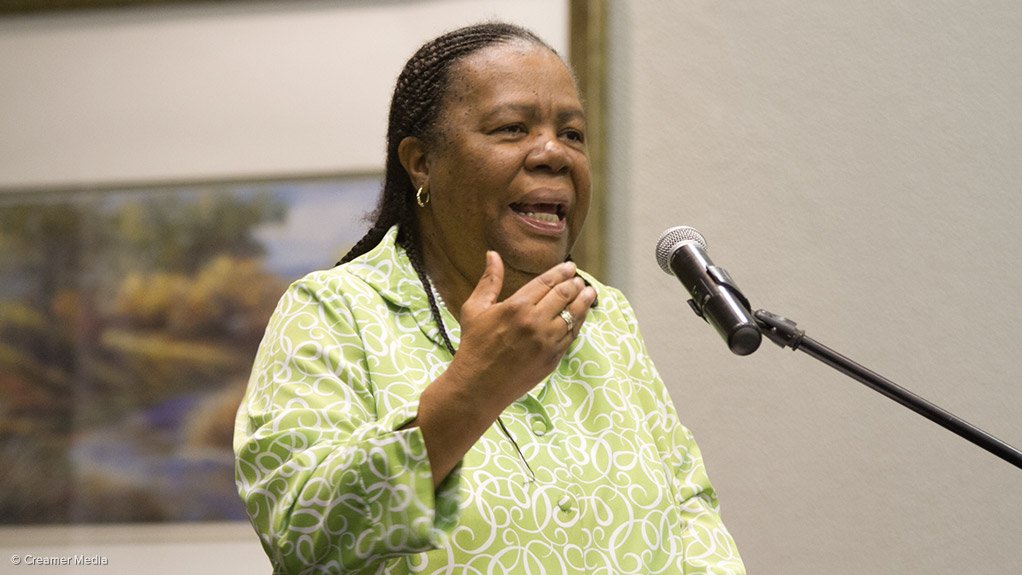South African Science and Technology Minister Naledi Pandor has highlighted the importance of the Science, Technology and Innovation Strategy for Africa (Stisa) and the key role of the international Square Kilometre Array (SKA) radio telescope programme within the strategy. She was addressing the second meeting of SKA African partner countries in Pretoria on Wednesday.
"We hope that, through human capital development, innovation, value addition and industrialisation in alignment with Stisa, we will be able to uplift large sections of Africa's people," she stated. "Diversifying our economies and broadening our sources of growth and sustenance will help us to address poverty and foster both social transformation and economic competitiveness on the continent. As an excellent vehicle for human capital development as well as for innovation [in] key technologies such as the ICT [information and communications technology] sector and most notably for the big data economy, SKA Africa has a key role to play in supporting the implementation of Stisa."
In line with the African Union's (AU's) Agenda 2063, the recent First African Summit on Higher Education (held in Senegal) agreed on the need for a continental strategy to stimulate African higher education and promote leading edge high level research, she pointed out. This will require investment in academic staff, research facilities and infrastructure, by both States and private sectors. "Again, the SKA project in Africa will help to play an enabling role to achieve these objectives."
Pandor noted that the higher education and research strategy aimed to identify 200 African universities and develop them into centres of excellence to meet the needs of the continent's development by 2063. Part of this will be the mobilisation of the African diaspora. The summit agreed to develop a programme to sponsor 1 000 scholars from the diaspora every year for ten years to come to African universities to undertake collaborative research, postgraduate teaching and mentoring and help in curriculum development. This would be applied across all disciplines and would also be used to promote gender equity.
"I wish to remind you that when South Africa hosts the African Union summit in June this year, our leaders will be able to report the role that we are playing in the implementation of the Science, Technology and Innovation Strategy for Africa, in particular with regard to human capital development and our progress on the AVN [African Very Long Baseline Interferometry Network] and the SKA," she observed. "This will be in accordance with commitments to the SKA project expressed in the declarations made at the AU's General Assemblies in both 2010 and 2012."
Apart from South Africa, the African SKA partner countries are Botswana, Ghana, Kenya, Madagascar, Mauritius, Mozambique, Namibia and Zambia. "The SKA remains an important African endeavour, with huge potential to contribute to and raise the profile of science, technology and innovation development on the continent," concluded Pandor.
EMAIL THIS ARTICLE SAVE THIS ARTICLE
To subscribe email subscriptions@creamermedia.co.za or click here
To advertise email advertising@creamermedia.co.za or click here











